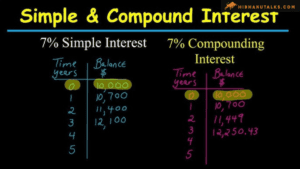
Wealth Building Mindset: Cultivating Habits for Financial Success
Contents
- 1 wealth building mindset
- 1.1 Wealth Building Mindset: Cultivating Habits for Financial Success
- 1.2 Understanding the Wealth-Building Mindset
- 1.3 Key Habits for Financial Success
- 1.3.1 1. Set Clear Financial Goals
- 1.3.2 2. Create and Stick to a Budget
- 1.3.3 3. Save Consistently
- 1.3.4 4. Invest Wisely
- 1.3.5 5. Avoid Debt and Manage It Wisely
- 1.3.6 6. Continuously Educate Yourself
- 1.3.7 7. Cultivate a Positive Money Mindset
- 1.3.8 8. Practice Patience and Discipline
- 1.3.9 9. Network with Like-Minded Individuals
- 1.3.10 10. Stay Adaptable
- 1.4 Building Wealth Through Investing
- 1.5 Creating Multiple Income Streams
- 1.6 Maintaining Financial Health
- 1.7 Conclusion
- 1.8 Frequently Asked Questions (FAQs)
- 1.9 wealth building mindset
- 1.10 Real Estate Investing for Beginners
wealth building mindset
Wealth Building Mindset: Cultivating Habits for Financial Success
Building wealth isn’t merely about making money; it’s about adopting a mindset that fosters financial success over the long term. Whether you’re starting with modest means or already have a substantial income, cultivating the right habits can make a significant difference in your financial journey. Here’s a clear-cut explanation of how to develop a wealth-building mindset and the key habits to ensure your financial success.


Understanding the Wealth-Building Mindset
What is a Wealth-Building Mindset?
A wealth-building mindset involves thinking and behaving in ways that promote financial growth and stability. It encompasses attitudes, beliefs, and practices that prioritize long-term financial health over short-term gains. This mindset is characterized by discipline, patience, and a proactive approach to managing and growing your finances.
Why is Mindset Important for Financial Success?
Your mindset shapes your actions, and your actions determine your financial outcomes. By cultivating a positive and proactive approach to money, you can make better financial decisions, overcome obstacles, and stay motivated on your wealth-building journey.
Key Habits for Financial Success
1. Set Clear Financial Goals
Setting specific, measurable, achievable, relevant, and time-bound (SMART) financial goals provides direction and motivation. Whether it’s saving for a house, building an emergency fund, or investing for retirement, clear goals help you stay focused and track your progress.
Why Goals Matter
Goals give you something to aim for and help you develop a plan to achieve them. They turn vague desires into actionable steps, making it easier to prioritize your spending and saving.
2. Create and Stick to a Budget
A budget is a fundamental tool for managing your finances. It helps you track your income, expenses, and savings, ensuring you live within your means and allocate funds towards your financial goals.


Budgeting Tips
- Track Every Expense: Write down every purchase to see where your money goes.
- Categorize Spending: Divide your expenses into categories like housing, food, entertainment, and savings.
- Adjust Accordingly: Regularly review your budget and make adjustments to stay on track.
3. Save Consistently
Saving money should be a priority, not an afterthought. Aim to save a portion of your income regularly, ideally 20% or more. This habit builds a financial cushion and provides funds for investments.
Automate Your Savings
Set up automatic transfers to your savings account to ensure you save consistently without thinking about it. This “pay yourself first” approach guarantees that saving is a priority.
4. Invest Wisely
Investing is crucial for growing your wealth over time. It allows your money to work for you, generating returns through interest, dividends, and capital gains.


Investment Strategies
- Diversify Your Portfolio: Spread your investments across various asset classes to reduce risk.
- Understand Your Risk Tolerance: Choose investments that match your comfort level with risk.
- Stay Informed: Keep up with market trends and economic indicators to make informed decisions.
5. Avoid Debt and Manage It Wisely
Debt can be a significant barrier to financial success if not managed properly. Avoid unnecessary debt and focus on paying down any existing debt as quickly as possible.
Tips for Managing Debt
- Prioritize High-Interest Debt: Pay off high-interest debts first to save on interest payments.
- Consolidate Debt: Consider consolidating multiple debts into one with a lower interest rate.
- Use Credit Responsibly: Only borrow what you can afford to repay and make payments on time.
6. Continuously Educate Yourself
Financial literacy is key to making informed decisions. Continuously educate yourself about personal finance, investing, and economic trends.
Ways to Educate Yourself
- Read Books and Articles: Stay updated with the latest financial literature.
- Attend Workshops and Seminars: Learn from experts and network with other like-minded individuals.
- Follow Financial News: Keep up with news that impacts the economy and your investments.
7. Cultivate a Positive Money Mindset
Your attitude towards money can significantly impact your financial success. Cultivate a positive and proactive mindset that views money as a tool for achieving your goals, not as a source of stress or conflict.
Practice Gratitude and Contentment
Appreciate what you have and focus on your progress rather than comparing yourself to others. This mindset helps you stay motivated and reduces the temptation to make impulsive financial decisions.
8. Practice Patience and Discipline
Wealth-building is a marathon, not a sprint. It requires patience and discipline to stay the course and make consistent progress towards your financial goals.
Long-Term Perspective
Focus on long-term growth rather than short-term gains. This perspective helps you make better financial decisions and weather economic fluctuations.
9. Network with Like-Minded Individuals
Surround yourself with people who share your financial goals and values. Networking with like-minded individuals can provide support, advice, and new opportunities for growth.
Join Financial Communities
Participate in online forums, social media groups, and local meetups focused on personal finance and investing. These communities offer valuable insights and encouragement.
10. Stay Adaptable
The financial landscape is constantly changing. Stay adaptable and open to new opportunities and strategies for building wealth.
Embrace Change
Be willing to adjust your financial plans as needed. Whether it’s a new investment opportunity or a change in your financial situation, staying flexible helps you capitalize on opportunities and mitigate risks.


Building Wealth Through Investing
Understanding the Power of Compounding
Compounding is the process where the earnings on your investments generate their own earnings. Over time, this can lead to exponential growth in your wealth.
How to Leverage Compounding
Start investing early and consistently to take full advantage of compounding. Even small amounts can grow significantly over time.
Types of Investments
- Stocks: Investing in individual companies can offer high returns but comes with higher risk.
- Bonds: These are lower-risk investments that provide steady, albeit lower, returns.
- Real Estate: Property investments can generate passive income and appreciate over time.
- Mutual Funds and ETFs: These provide diversification and professional management, making them suitable for many investors.
Risk Management
Diversification and proper asset allocation are key to managing risk in your investment portfolio. Spread your investments across different asset classes and sectors to minimize potential losses.
Creating Multiple Income Streams
Relying on a single source of income can be risky. Diversify your income streams to build financial stability and increase your wealth.
Side Hustles
Consider starting a side business or freelancing in your spare time. This additional income can be saved or invested to accelerate your wealth-building journey.
Passive Income
Invest in assets that generate passive income, such as rental properties, dividend-paying stocks, or royalties from creative works.
Maintaining Financial Health
Regular Financial Check-Ups
Regularly review your financial situation to ensure you’re on track to meet your goals. Adjust your budget, savings, and investment strategies as needed.
Professional Advice
Consider seeking advice from financial advisors or planners. They can provide personalized guidance and help you make informed decisions.
Emergency Fund
Maintain an emergency fund to cover unexpected expenses. This fund acts as a financial safety net, preventing you from going into debt during emergencies.


Conclusion
Cultivating a wealth-building mindset is the cornerstone of financial success. By adopting the right habits—setting clear goals, budgeting, saving, investing, and continuously educating yourself—you can achieve financial stability and growth. Remember, building wealth is a journey that requires patience, discipline, and a proactive approach. Stay focused on your goals, adapt to changes, and continuously strive for improvement. With the right mindset and habits, financial success is within your reach.
Frequently Asked Questions (FAQs)
1. How long does it take to build significant wealth?
Building significant wealth can take several years to decades, depending on your income, savings rate, investment returns, and financial discipline. Consistent effort and smart financial decisions are key to long-term success.
2. Can anyone develop a wealth-building mindset?
Yes, anyone can develop a wealth-building mindset. It requires dedication, continuous learning, and adopting positive financial habits. Regardless of your starting point, a proactive approach can lead to financial success.
3. What is the best way to start investing?
The best way to start investing is to educate yourself about different investment options and begin with small, manageable amounts. Consider consulting a financial advisor to create a personalized investment plan that aligns with your goals and risk tolerance.
4. How can I avoid financial setbacks?
To avoid financial setbacks, create an emergency fund, manage debt responsibly, diversify your income streams, and stay adaptable to changes in the financial landscape. Regular financial check-ups and professional advice can also help mitigate risks.
5. Is it necessary to have a high income to build wealth?
While a higher income can accelerate wealth-building, it is not necessary. Building wealth is more about managing your finances wisely, saving consistently, and making informed investment decisions. Even with a modest income, you can achieve financial success by adopting the right habits and mindset.





















1 comment